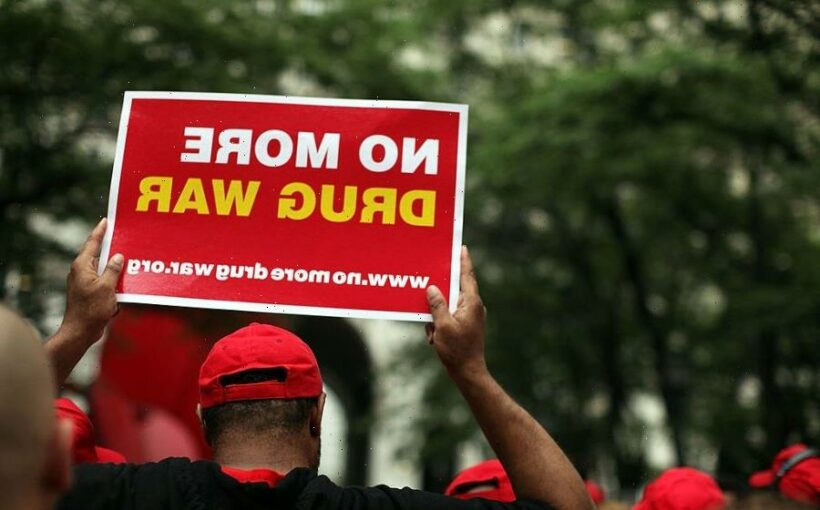While long overdue, the announcement by President Biden that he is going to pardon all federal marijuana simple possession charges may be the largest federal marijuana reform since the beginning of the war on drugs half a century ago. However, without fully descheduling marijuana, the announcement is insufficient to deal with the harms caused by decades of racially biased enforcement and only further underscores the need for Congress to pass a comprehensive reform bill.
To be clear, this announcement will positively impact thousands of lives. People with simple marijuana charges often find themselves facing significant consequences, including difficulty finding employment, housing and denial of federal benefits. Overwhelmingly, people of color have been the primary targets for such arrests.
The pardons will provide relief to many who have been targeted by racially biased drug war enforcement. And yet, many, many more will not see any relief at all based on this announcement.
According to a 2018 report by the ACLU, Black Americans are three and a half times more likely to be arrested for marijuana possession than white people, despite similar use rates. In the federal system, the U.S. Sentencing Commission reports that Black and Hispanic people make up over 80% of people sentenced for marijuana offenses despite only making up about 30% of the total U.S. population. The pardons will provide relief to many who have been targeted by racially biased drug war enforcement. And yet, many, many more will not see any relief at all based on this announcement.
Despite its positive impact, the executive order will not create a path to resentencing for individuals with cultivation or distribution charges. This means people with the most severe marijuana sentences will still be stuck in the same position they were in before the Biden announcement. In an age when white marijuana CEOs are making millions, it is a travesty that so many Black, Latinx, and indigenous Americans are serving time for producing and selling the exact same product.
An arrest itself can be a traumatic event, both physically and emotionally. And harsher sentences have a ripple effect upon families and communities where arrested individuals once lived, especially when these arrests are concentrated in certain communities. Data shows that marijuana arrests occur disproportionately in Black, Latinx and Indigenous communities.
Being separated from loved ones is distressing for both the incarcerated person and their family members, particularly if they have young children. Incarceration means that families have one less income-earner in their household, one less parent to help raise kids, and one less loved one around to share birthdays and holidays with.
Also left out of the Biden announcement are many non-citizens, which is especially concerning considering US Sentencing Commission data suggests over 72% of people with federal marijuana possession cases in fiscal year 2021 were non-citizens. Old marijuana charges lurk like ticking timebombs for non-citizens, who potentially face deportation for previous charges, even if those offenses are decades-old. Immigration advocacy organizations are voicing concerns that the announcement will not remove the potential for detention and deportation for any immigrants. In fact, non-citizens can still be deported for using marijuana in a state where it is legal or for even merely working in a state-licensed marijuana business.
All of this underscores the need for Congress to pass comprehensive marijuana reform. Thankfully, the House has already done so with the passage of the Marijuana Opportunity and Reinvestment (MORE) Act, which completely removes marijuana from the Controlled Substances Act, creates a pathway for resentencing of federal marijuana offenses, and provides funding to repair communities that have been disproportionately harmed by racist drug war enforcement. Recently, Senate Majority Leader Schumer, Senator Booker, and Senator Wyden introduced the Cannabis Administration and Opportunity Act (CAOA), a similar bill with even more comprehensive criminal justice reform provisions.
The Biden announcement would also direct his administration to begin the process of potentially moving marijuana out of Schedule 1 of the Controlled Substances Act. Marijuana’s placement in Schedule 1 means it has no medical value and has a high potential for abuse, something most Americans, including healthcare practitioners, no longer believe. But moving marijuana elsewhere on the CSA maintains severe criminal penalties and other severe consequences for marijuana offenses. Additionally, moving marijuana elsewhere in the CSA could potentially enable federal agencies to interfere with state marijuana programs, which can cause chaos, particularly for social equity entrepreneurs and other small marijuana businesses. Both the MORE Act and CAOA fully remove marijuana from the CSA, a necessary step to truly end the racially biased federal war on marijuana.
We urge President Biden to support comprehensive marijuana reform that leads with descheduling and for Majority Leader Schumer to do what it takes to make sure the CAOA makes it across the finish line before the end of the year. The Senate may be running out of days on its calendar, but if they fail to pass comprehensive reform, this administration will have only put a bandaid on an incredibly broken system. Without removing marijuana from the Controlled Substances Act, America will never have marijuana reform rooted in racial equity or deliver the justice our communities deserve.
Kassandra Frederique is the Executive Director of the Drug Policy Alliance.
Source: Read Full Article
